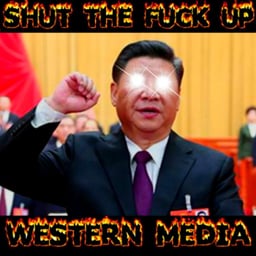Personally, I don’t support either Ukraine or Russia, I see Ukraine as harboring nazis and they should answer for their crimes in the Donbas. However, when Russia invaded Ukraine I saw it as an imperialist invasion for Putin to conquer Ukraine. After He annexed the Donetsk, Kherson, Luhansk, and Zaporizhzhia oblasts, this became a very blatant imperialist invasion. Secondly, I found this post, which talks about the Russian capture of Bakhmut. I was suprised about the number of people who supported Russia. Am I wrong here for not supporting Russia? I would love to hear you opinions on this matter.


Imperialism, as we Marxists understand it, is not simply territorial expansion – which latter, furthermore, does not really describe Russia’s actions in Crimea and the Donbass. What happened is that regions which are historically Russian broke from Ukraine after the 2014 coup, and Russia moved in both to secure its interests and to protect ethnic Russians (plus other minorities) from genocide. Normally one should oppose one state meddling in another’s sovereignty, and as socialists who are opposed to the ultraleft line of “abolish all nations immediately,” we do. But materially, any revolution – and the Maidan was a revolution – abolishes the basic set of premises and understandings (what liberals call the “social contract”) on which a particular nation is built, and these must be reestablished by force. This is why nearly every revolution in history, the Russian revolution included, was followed by territorial adjustments. Hence, if the Ukrainian junta is unable to establish control over the Donbass and Crimea, these regions are materially speaking not part of the current Ukrainian state.
(The analogous situation, in other words, is not the US invading Iraq. It would be if the central government in Washington were toppled by some sort of coup, and in the chaos which followed, majority-Hispanic regions of Texas and Southern California decided to join Mexico. Mexico sending troops into these regions of the now-weakened United States in order to secure its own interests would not be a violation of US sovereignty – for US sovereignty in these regions would only exist to the extent it could be defended by force).
Now for imperialism. Imperialism, again as we Marxists understand it, is related to empire as capital is related to capitalism. Capital in itself is neutral; it exists in socialist states as well as capitalist ones. Capitalism, however is an economic system which works to benefit a private capital-owning class; which means production organized not for human need but for profit, i.e., the profit of certain private individuals. Similarly, empires have existed throughout history, and there is a sense in which even the Soviet Union or the People’s Republic of China could be neutrally described as “an empire.” But imperialism, as Marxists define it, is an economic system based on the possession (legally or de facto) of economic dependencies, which are deliberately kept poor and underdeveloped. This is the relation between the US and Haiti, the US and Iraq, and yes, the US and Ukraine. It is not the relation subsisting between Russia and regions like Crimea or the Donbass or Chechnya.
It is important to understand that imperialism is not about intent, but material reality; it is not, in other words, as the liberals define it, which is basically “military stuff with bad vibes.” Imperialism, as an economic system, is a feature of highly developed capitalist economies, which modern Russia is not. An imperialist nation must, almost of necessity, export not commodities but capital; it must have a highly developed financial sector to facilitate this; very often, it has itself become deindustrialized, i.e., it has located most of its industrial production elsewhere. Russia, which primarily exports raw materials, is clearly not a nation of this kind.
Lastly, on the topic of Russia : well-meaning people will often wonder why we support Russia in this conflict, since the Russian Federation is clearly not the USSR. We acknowledge what happened in Russia in 1991, and admit it was a disaster for the Russian people and for the global socialist movement. However, the “Russia is capitalist” line is simplistic, in that it implies one can go from socialism back to full-fledged capitalism. This is not how things actually work: no nation can revert to a lower stage of production. If it loses the higher stage, it collapses into chaos, but it does not attain to a lower stage. Thus, the extent to which Russia is stable and prosperous is precisely the extent to which the Soviet economy, and its infrastructure and means of social organization, still exist; the extent to which it is stagnant and unstable is the degree to which it has been “re-capitalized” and its economy come under the domination of the West. For Russians and for all post-Soviet people, the choice really is “socialism or barbarism.”
very good summary 👍
Are you using “full-fledged capitalism” in the sense of a deindustrialized, financialized version of capitalism like in the imperial core? I don’t think it’s untrue to say that Russia is capitalist, even if it’s lacking in nuance
Yes, and furthermore: Russia will be unable to achieve a kind of capitalism capable of creating, on its own, positive growth. The capitalist economy there will always be parasitic on the old Soviet economic structure. Russia is capitalist, but in an atypical way. Its capitalism is the socialist economy in decay.
Makes sense. I can’t predict the future but I’m inclined to agree that there’s basically no chance of Russia (voluntarily) deindustrializing like the West